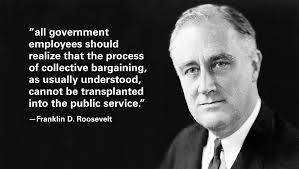
Another day, another study finding that Connecticut state employees are paid so much better than private-sector workers. The latest study was done by a senior fellow at the American Enterprise Institute, Andrew Biggs, who holds a doctoral degree from the London School of Economics.

Biggs’ conclusion matches that of similar studies in recent years — that the nominal salaries of state employees are a little smaller than those of private-sector workers in comparable positions, by about 6%, but their fringe benefits — pensions and medical care — are more than three times greater than what private-sector workers get, an average of $44,000 per year against $13,000.
Until recently state government kept mostly under control the part of state employee compensation that was easily discerned — the salaries — while incurring enormous long-term obligations that few would see and that were not funded adequately, or at all.
The state employee unions knew very well what was going on, for they formally consented to it via their contracts. Their tools in the government figured that when the long-term obligations exploded, they would be someone else’s problem.
Lately pension liabilities have been devouring the state budget. Biggs estimates that equalizing state government compensation with private-sector compensation could save $2 billion a year.
Such studies are always questionable in some details. The Connecticut Examiner quotes an economics professor at Eastern Connecticut State University, Brendan Cunningham, who questions job comparability. Cunningham asks: “In what sense is there a comparable private-sector judge? The same with state police: What’s the private-sector version?”
But even there the excesses are plain.
Superior Court Judge Alice Bruno hasn’t shown up for work for more than two years but still has been paid $340,000 while the Judicial Department wonders what to do about her.
Over at the state police, in 2019 Sgt. John McDonald got drunk at a retirement party in Oxford and drove off and crashed a state police vehicle into another car, seriously injuring its two occupants. He was charged criminally and his police powers were suspended. But for two years he remained on the payroll doing administrative work, collecting tens of thousands of dollars in overtime even as he was serving the criminal probation of a plea bargain. McDonald resigned last November while under investigation for unrelated misconduct but the income he earned while on criminal probation counted toward his pension credits.
Yes, as Professor Cunningham notes, sometimes there is little comparison between government and private-sector jobs, but the public is still cheated. For what private-sector employer would tolerate situations like Bruno’s and McDonald’s as state government tolerates them?
Even when government and private-sector jobs in Connecticut are not so comparable, there is still little discipline in state government employment, and this lack of discipline constitutes a theft of services from the public even if its cost is not calculated in monetary terms.
These outrages are indefensible and the state employee unions know better than to confront them. Instead they try to change the subject, clamoring to raise taxes on the rich, figuring that the public will resent the outrages less if someone else is paying more for them.
As he begins his campaign for re-election, Governor Lamont, a Democrat, has decided to let the outrages continue and to increase their cost. He has offered the unions a luxurious new contract with big raises and even cash bonuses, since the unions are his party’s political army.
The governor says the raises and bonuses are necessary to keep state government’s workforce reasonably intact, since many state employees are expected to depart over the next year.
But those employees are leaving not for better-paying jobs in the private sector but because state government’s retirement benefits are so luxurious and will be slightly curtailed in the future.
The expiration of the current state employee union contract presents an opportunity for state government to serve the public better at much less cost. That opportunity won’t be seized. Indeed, even Connecticut’s opposition party may be too frightened by the unions to acknowledge it.
![]()
Chris Powell has worked for the Journal Inquirer in Connecticut since 1967, first as a reporter, then as an editor, and now as a columnist. He was managing editor from 1974 until retiring from that position in 2018.

